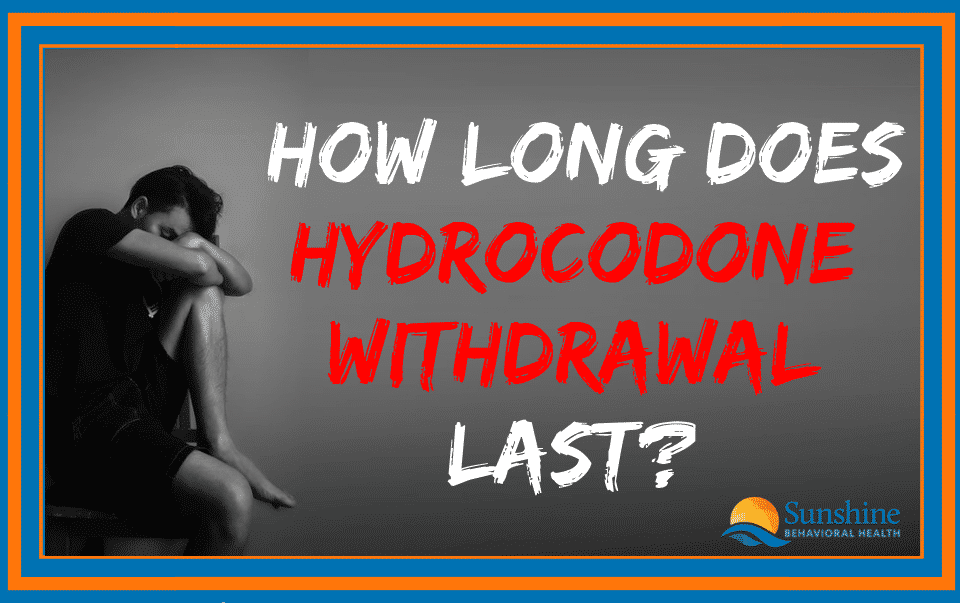
Hydrocodone is a dangerous drug. While it is prescribed to people who deal with pain, from acute to chronic, there are many negative and sometimes even severe side effects. This drug has a high potential for being abused. Users can become physically and psychologically dependent upon it. Hydrocodone is one of the opioids on the Controlled Substances list. Learning more about hydrocodone withdrawal may help you to avoid using it or get proper treatment if you need as well.
Hydrocodone Abuse
According to the Drug Enforcement Administration, hydrocodone is the opiate that is most prescribed in the United States. There were 83.6 million prescriptions for hydrocodone given in the United States during 2017. There are risks of abuse for anyone who uses hydrocodone. Millions of people become dependent on this drug. While under the influence of this drug, the brain is convinced the drug can relieve any stress or discomfort. That is part of why it is so widely abused. If you have been abusing this drug, it is time to learn more about hydrocodone withdrawal.
Symptoms of Hydrocodone Withdrawal
When someone becomes dependent on hydrocodone, reducing the intake or going off from the drug, can lead to symptoms of withdrawal. The user may experience painful, uncomfortable, or unpleasant withdrawal symptoms. Some of these include the following:
-
Irritability
-
Anxiety
-
Yawning
-
Depression
-
Insomnia
-
Runny nose
-
Joint pain
-
Insomnia
-
Muscle cramps
-
Shivering or sweating
-
Upset stomach
These are just some of the symptoms of hydrocodone withdrawal. If you are already experiencing these symptoms, be sure to get addiction rehab treatment right away. It can be helpful to know more about the timeline for hydrocodone withdrawal as well.
Timeline for Hydrocodone Withdrawal
Someone who is withdrawing from hydrocodone may experience symptoms of withdrawal within the first 12 hours after last using the drug. There are many factors that may affect this timeline though. They include the length of use, dosage, tapering schedule, genetics, mental health, and more. For most people, the first symptoms are pain and muscle cramping. In most cases, the 48 hours after last use are the most troubling. That is why those 2 days produce the highest chance of relapsing. Due to the increased risk, it is often recommended to seek detox treatment.
Once the user gets past those first 48 hours, the physical effects aren’t quite as severe. They may still experience some pain or discomfort. The user should eat easy-to-digest meals, since they may still feel weak and nauseous. Diarrhea is a common symptom during the first week. Some people experience symptoms of depression during the first week of recovery as well. The depression may increase cravings.
Near the end of that first week and during the first part of the second week, symptoms start to decline. The recovering addict starts to feel a little better. It is recommended that recovering addicts start performing light exercise at this point. It will help to reduce symptoms of depression, pain, and refresh them as well. Your body needs to heal after an addictive lifestyle or substance abuse. By resting your mind and physically restoring your body, you can get the healing you need, for the next part of your recovery.
Deaths Related to Hydrocodone Abuse
Hydrocodone abuse and addiction are both serious. Did you know that each day there are around 7,000 people who go to an emergency room due to prescription pain medication abuse? While there are programs in place to help reduce the number of hydrocodone addictions and overdoses, they aren’t quite enough. People share their drugs and abuse hydrocodone in many ways. The Drug Enforcement Administration stated in 2012, there were 29,391 hydrocodone abuse cases. Amongst those, were 36 fatal cases. In addition, there is a National Survey that states 24.4 million US citizens abuse hydrocodone. Thousands of people die each year from overdosing on prescription pain medications. If you have been abusing hydrocodone, now is the time to stop. Now is the time to get treatment.
Treating Hydrocodone Abuse or Addiction
As mentioned, there are millions of people who abuse or are addicted to hydrocodone. It is important everyone knows how the various treatment options related to overcoming hydrocodone abuse or addiction can help. Some of the ways these treatment programs can help you include the following:
-
Tapering you off hydrocodone or going cold turkey with proper medical supervision
-
Supervision during withdrawal to ensure safety
-
Support from the therapists and others who are in treatment
-
Life skill education to help recovering addicts readjust to society
-
Programs for the family to help re-establish trust, boundaries, and healthier relationships
These are some of the ways the various treatments for hydrocodone abuse or addiction can help.
Make the call today. If you have been abusing hydrocodone or become addicted to it, now is the time to get treatment. You can get through the hydrocodone withdrawal and into recovery.
A Message From Our CEO
Medical disclaimer:
Sunshine Behavioral Health strives to help people who are facing substance abuse, addiction, mental health disorders, or a combination of these conditions. It does this by providing compassionate care and evidence-based content that addresses health, treatment, and recovery.
Licensed medical professionals review material we publish on our site. The material is not a substitute for qualified medical diagnoses, treatment, or advice. It should not be used to replace the suggestions of your personal physician or other health care professionals.





